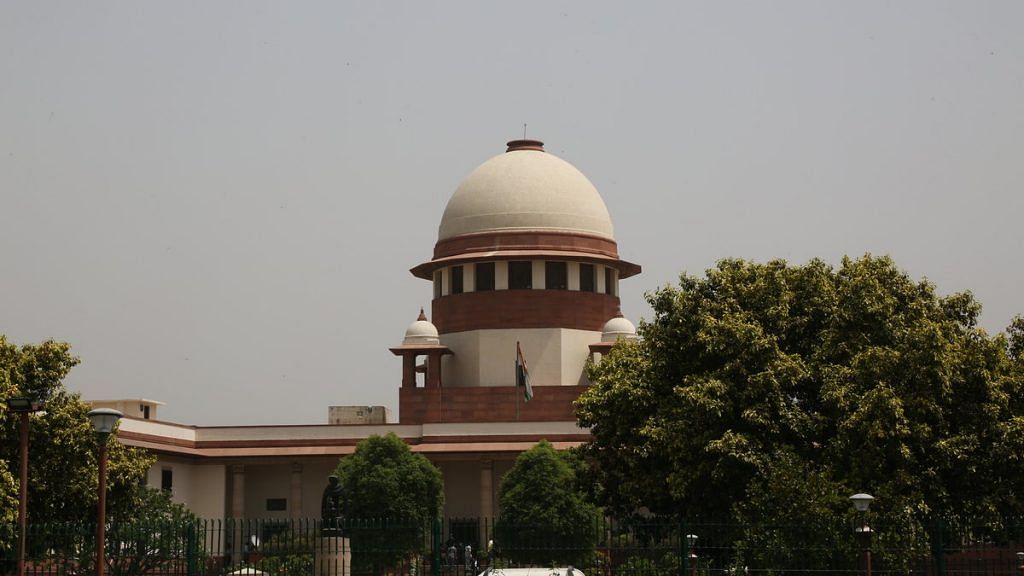New Delhi: The Supreme Court Thursday said district judges in Madhya Pradesh were free to take disciplinary action against employees with more than two children — a violation of the 2016 service rules.
The employees at the state judiciary are governed by the service rules of 2016 and according to the statutory provisions, an employee with more than two children, born after 26 January 2001, shall be in violation of the rules and it will be deemed as a misconduct.
The increments of several such employees were withheld with cumulative effect as penalty. In some cases, two or three increments were withheld.
A bench led by Chief Justice S.A. Bobde modified the Madhya Pradesh High Court’s order, issued on 7 August 2019, which directed district judges not to withhold increments but only censure the employees if they had joined the service before the rule was notified. While the service rules were amended in 2016, they were notified only in June 2019.
The HC had given its ruling on nine petitions filed by employees posted in various district courts, criticising the penalty imposed on them.
In addition to reducing the penalties in the nine petitions, the HC had also said all cases pending with the district judge of employees recruited before June 2019 shall only be censured with no disciplinary action.
While the top court did not amend the reduction of penalty by the high court in the nine petitions, it felt the latter had “committed a serious error in issuing general and overarching directions” by restricting the disciplinary action a district judge can take against an employee for violating the service rules.
Such a direction, the SC held, was beyond the scope of the issue raised before the high court, as it permitted the district judge to “exercise discretion” depending upon the facts of each case.
Also read: States can levy special fees for fancy vehicle registration numbers, Supreme Court rules
‘HC reducing penalty is a humane approach’
According to the nine petitions filed by employees before the Madhya Pradesh HC, the punishment of withholding increments was disproportionate to the alleged misconduct committed by them. They also questioned if disciplinary action can be taken against employees for having three or four children.
The HC gave relief to the employees on the grounds that the condition with regard to number of children was not specified in the advertisements for the posts they had applied for and reduced the penalty to censure and extended its order to all such cases pending before the district judge of employees.
The Registrar General of the Madhya Pradesh High Court then filed a plea in the SC against the high court’s order, terming the action taken by district judges as highly punitive that did not require judicial intervention.
Appearing for the registrar general, senior advocate Ravindra Srivastava and Arjun Garg argued that the district judge had issued a well-reasoned order and the HC had in a way annulled the discretionary powers of the district judge through its order.
They argued that the competent authority should be given the freedom to decide the penalty for a violation. MP Additional Advocate General Swarupama Chaturvedi also supported the HC registrar general’s stand.
Though the top court accepted the registrar general’s submission in the context of a competent authority’s powers, it supported the HC for reducing the penalty in the nine petitions.
“Having regard to the circumstances of the case, the High Court thought fit to modify the punishment of withholding two increments with cumulative effect into one of censure. We find no reason to interfere with this order of the High Court which is humane and appropriate for dealing with the alleged misconduct,” the bench said.
Also read: Madhya Pradesh High Court judge makes donations for food to poor a bail condition
